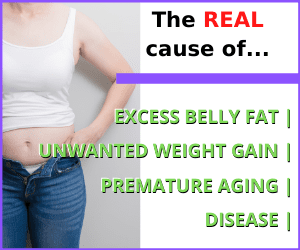 Menopause is a natural process in women's lives, but many women experience significant weight gain during this transition. The five things to know about menopausal weight gain are that it often happens without any changes in diet or exercise, there may be underlying hormonal reasons for the increase in weight, some lifestyle factors can contribute to increased weight with menopause such as sleep deprivation and decreased hormone levels which lead to low energy levels. There are also steps you can take to reduce your risk of gaining too much weight while going through menopause:
Menopause is a natural process in women's lives, but many women experience significant weight gain during this transition. The five things to know about menopausal weight gain are that it often happens without any changes in diet or exercise, there may be underlying hormonal reasons for the increase in weight, some lifestyle factors can contribute to increased weight with menopause such as sleep deprivation and decreased hormone levels which lead to low energy levels. There are also steps you can take to reduce your risk of gaining too much weight while going through menopause:
1. Many women who are perimenopausal or postmenopausal notice an increase in body weight. However, this is not always the case and menopausal weight gain varies widely among individuals.
2. It's often worse for younger women, who are more likely to gain more than 10 pounds with menopause.
3. While it can be challenging for anyone to lose weight (and especially belly fat), losing excess pounds during the transition into menopause is important to reduce your risk of chronic diseases like heart disease and diabetes later on.
4. Many hormones affect how our bodies metabolize food, including insulin, cortisol, adrenaline, thyroxin and estrogen levels which fluctuate during the perimenopausal leading up to full-blown menopause.
 5. Several lifestyle factors contribute to weight gain during menopause such as poor sleep, smoking and drinking alcohol, lack of exercise, stress and low energy levels due to lower estrogen levels.
5. Several lifestyle factors contribute to weight gain during menopause such as poor sleep, smoking and drinking alcohol, lack of exercise, stress and low energy levels due to lower estrogen levels.
If you're noticing weight gain with menopause, there are several things to consider. Here's what we know about this common event and how it may affect your health and well-being. We hope that by providing these helpful insights, you'll be able to make more informed choices about how you manage or cope with any changes during this stage of life. Let us know if we can provide further guidance on managing your weight as part of the natural aging process.



I think it’s interesting that you show a couple at the end drinking what looks to be white wine. Even though we know alcohol is associated with weight gain (it’s loaded with sugar) and many diseases, not to mention a serious cause of addiction. I’m not trying to be Dr. Buzzkill here but I find it fascinating that so many “experts” defend alcohol consumption, for eg. touting the benefits of red wine, even though grape juice has all the same benefits without the alcohol – and do you ever hear anyone recommending grape juice? I always hear the phrase, “moderation in all things,” and I’m sure there was a time when doctors said that about smoking, too. The bottom line is that people defend alcohol because they themselves like feeling boozy; it’s the definition of personal bias.
Wow I dont think many people realise the implications of such subliminal messages and .I acertainly agree with your comment that there are many foods and drinks that provide many more benefits than red wine.
Yes, I get annoyed when the “experts” always seem to be promoting alcohol with the “living healthy options” it can/will feed in to peoples (already) low self-esteem by allowing them to feel/think that this behaviour is acceptable.. Thank you for sharing..
Some great advice …thanks
Nothing new here everything I’ve already know